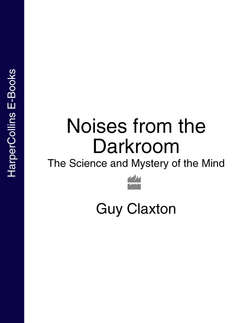Читать книгу Noises from the Darkroom: The Science and Mystery of the Mind - Guy Claxton - Страница 14
Evolutionary Beginnings
ОглавлениеBut let us start at the beginning, with a résumé of the evolutionary history of humankind – a fuller version of which comprises the first part of this book – to orientate you. The twists and turns of our long evolution have bequeathed us a mind that, below the surface, is a curious tangle of abilities and limitations, strengths and weaknesses. It is not an instrument of elegant design, but a ramshackled raft, constructed out of a hodge-podge of materials, each of which happened to float by at a time then they could be used. If we could put the human mind in dry dock, take it to bits, and start again from scratch, we would never come up with the Heath Robinson contraption that has been handed down to us.
The vast majority of this mental raft – and the vast majority of its intelligence – lies below the surface. Conscious awareness arrived, in the course of evolution, probably with the evolution of active hunting as a method of catching food, and probably earlier and more clearly in species that were prey than those that were predators. And it emerged as a corollary of a particular kind of ‘alarm reaction’. But with the development of social living, of language, and of the technology that could make life stable and relatively affluent, consciousness got appropriated by a variety of other systems within the mind, until today it has almost (but not quite) lost its original nature and purpose. In the detailed unravelling of this story, we can find an adequately complicated diagnosis of where and how the mind missed its way.
The mind is a specialized development of the brain, which is a specialized development of the body. The current myth of the body as a mobile pillar of meat piloted by an individual blip of conscious intelligence is false and harmful. Biology is telling us clearly that the body, with all its physical and psychological accoutrements, is a system, an intricate dance of processes and interactions that depends for its existence on continual penetration and perturbation by wider systems of which it is an inextricable part. The body ‘knows’ this; the brain ‘knows’ it’; the mind ‘knows’ it. Only the self-conscious ‘I’, sitting atop this mountain of interdependency, denies and ignores it. When ‘I’ is switched off, the brain-mind immediately recalls what it had affected to forget. ‘Ah yes,’ it whispers to itself; ‘I remember. I belong.’
If the essential mystery at the heart of human experience has somehow been squeezed out of the myths by which we are living, then science – twentieth-century empirical science – can re-mind us of this, just as powerfully as Mozart or meditation. ‘The mind’s new science’, as Harvard psychologist Howard Gardner has dubbed it, is doing just that. It shows us that mysticism is necessary, and mystery is logical.
